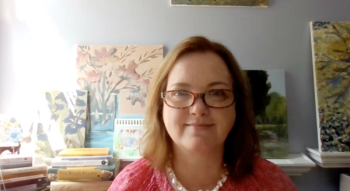
Susan Spratt, MD, senior medical director, Duke Population Health Management Office, breaks down the the prevalence of diabetes in the United States and discusses current diabetes initiatives at Duke Health.

Susan Spratt, MD, senior medical director, Duke Population Health Management Office, breaks down the the prevalence of diabetes in the United States and discusses current diabetes initiatives at Duke Health.
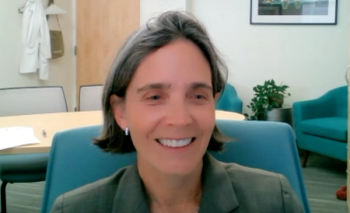
Carmen Solórzano, MD, FACS, of Vanderbilt University Medical Center (VUMC), discusss how VUMC uses technology to advance cancer treatments and her current research.

Nathan Walcker, CEO at Florida Cancer Specialists & Research Institute (FCS), highlights some of the recent partnerships and initiatives at FCS to improve community-based oncology care from a value-based perspective.
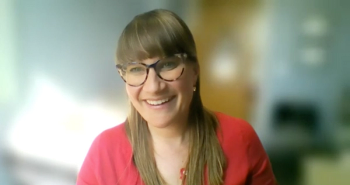
Erin Gillaspie, MD, MPH, FACS, a faculty member of Vanderbilt University Medical Center’s Department of Thoracic Surgery, discussed improvements in lung cancer outcomes due to new screenings and therapies.
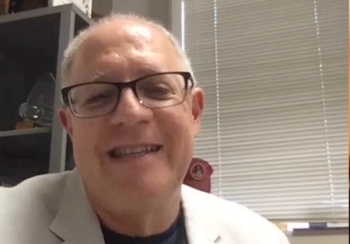
Jordan Berlin, MD, FASCO, of Vanderbilt University Medical Center, explained how patient preferences and new treatments are considered, as well as what he is currently working on and his biggest takeaway from The American Journal of Managed Care®’s Institute for Value-Based Medicine® held in Nashville, TN on August 17, 2023.
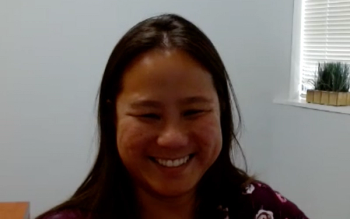
Jennifer Choe, MD, PhD, a head and neck medical oncologist at Vanderbilt University Medical Center, discussed head and neck cancer relapse post-radiation therapy, new treatment trials, and any promising responses from them.

Carmen Solórzano, MD, FACS, of Vanderbilt University Medical Center, discusses how Vanderbilt-Ingram Cancer Center (VICC) conducts tumor boards and explains how patient preferences are considered during them.
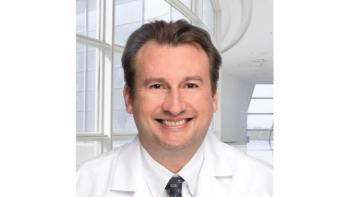
Lucio Gordan, MD, president and managing physician, Florida Cancer Specialists & Research Institute (FCS), discusses how FCS has learned to adapt during difficult times, including COVID-19, Hurricane Ian, and current drug shortages.
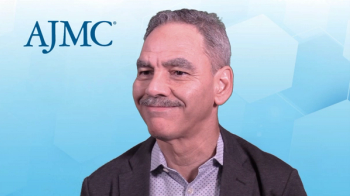
Gustavo Fonseca, MD, FACP, physician director of clinical research, Florida Cancer Specialists & Research Institute (FCS), discusses the results from a late phase complexity analysis on barriers to clinical trials regarding biopsy requirements.

Texas Oncology's Travis Brewer, vice president of payer relations, discusses how collaboration between primary care providers and oncologists can improve population health outcomes by focusing on payer initiatives and strategies.
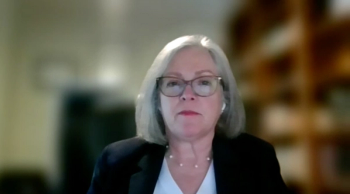
Susan Escudier, MD, FACP, vice president of value-based and quality programs for Texas Oncology, discusses how collaboration between oncologists and primary care physicians (PCPs) can improve patient satisfaction and outcomes.
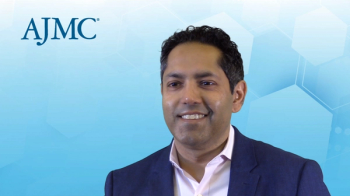
Amal Agarwal, DO, MBA, chief clinical officer at Monogram Health, explains the importance of value-based agreements in dialysis care, and the issue of dialysis prevalence among low-income and marginalized communities.
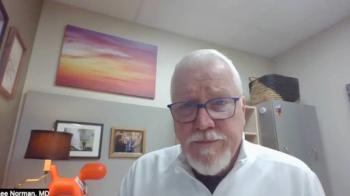
The best leaders are those who foster open communication, says Lee A. Norman, MD, MHS, MBA, who appeared at The American Journal of Managed Care®’s Institute for Value-Based Medicine® event on population health in Kansas City, Missouri.

Keeping up-to-date on information, whether it is about clinical matters or information systems, is critical to a deliberate learning mindset that is beneficial to health care providers, says Lee A. Norman, MD, MHS, MBA, the senior medical director for Optum Care Kansas City.

Stephen M. Schleicher, MD, MBA, Tennessee Oncology, co-authored a recent paper on the complexities of the rural cancer experience; the principal conclusion was potential for a streamlined care process to optimize care efficiencies and access, thereby improving patient outcomes.

Challenges around data are mostly around data itself, particularly if it is not timely, says Lee A. Norman, MD, MHS, MBA, the senior medical director for Optum Care Kansas City.

Using evidence and being open-minded are 2 strategies for providers shifting to new models of delivering care, says Lee A. Norman, MD, MHS, MBA, senior medical director for Optum Care Kansas City.
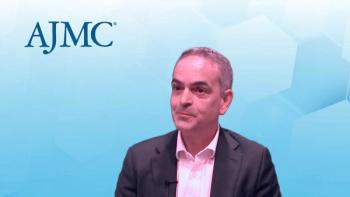
For all the success the hematology/oncology space has seen over the past 20-plus years, difficult discussions now focus on paying for that care, explained David A. Eagle, MD, New York Cancer & Blood Specialists.
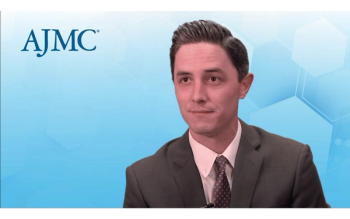
There are various areas across different patient care and support perspectives that offer opportunities to improve value-based care in oncology, said Ryan Huey, MD, gastrointestinal medical oncologist at MD Anderson Cancer Center in Houston, Texas.
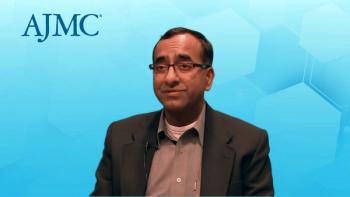
Sashi Naidu, MD, is director of research at Carolina Blood and Cancer Care Associates, where the No One Left Alone (NOLA) initiative is working to break down cancer health disparities among its patients and prevent care fragmentation.
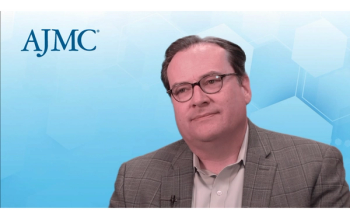
In a value-based cancer care model, patients can more easily access the best quality care and practices can get adequately paid for the services they offer.
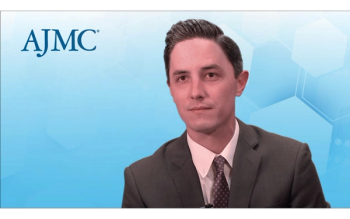
Ryan Huey, MD, gastrointestinal medical oncologist at MD Anderson Cancer Center in Houston, Texas, discussed the vital roles multiple health care providers play in improving outcomes for patients with cancer.

Close to 80% of what influences how long someone is going to live is where and how they live, and we need to pay more attention to that or we’re not paying attention to everything that affects their lives, explained David A. Eagle, MD, of New York Cancer & Blood Specialists.

Many people believe health equity is such a big issue that there is not much an individual practice can do to address it, explained Susan Sabo-Wagner, MSN, RN, OCN, executive director of clinical strategy, Oncology Consultants of Houston.
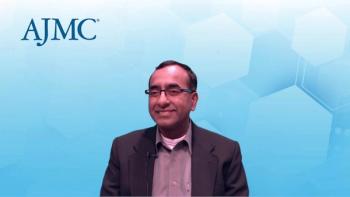
Carolina Blood and Cancer Care Associates’ No One Left Alone initiative works to dismantle cancer health disparities and increase health care equity among its rural patient population. Sashi Naidu, MD, director of research, discusses delivering next-generation sequencing testing to patients.

Stephen M. Schleicher, MD, MBA, chief medical officer at Tennessee Oncology, discusses the present state of value-based oncology care and what the future may bring when the Enhancing Oncology Model kicks off on July 1.

David A. Eagle, MD, New York Cancer & Blood Specialists, discusses the present state of treatment for cancer, which often sees patient financial concerns outweighed by the cost of treatment.

We’ve found through health equity initiatives that the search for the right telehealth modality is never ending, explained Oncology Consultants of Houston’s Susan Sabo-Wagner, MSN, RN, OCN, executive director of clinical strategy.

At Carolina Blood and Cancer Care Associates, the No One Left Alone (NOLA) initiative is working to break down cancer health disparities among its patients by addressing the social determinants of health that may be preventing equitable access to care.
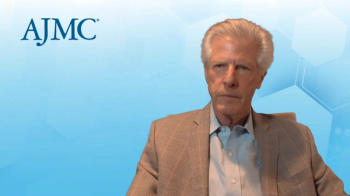
Big data has valuable implications for analyzing datasets and in day-to-day clinical practice, explained Ken Cohen, MD, director of translational research for Optum Care.

259 Prospect Plains Rd, Bldg H
Cranbury, NJ 08512
© 2025 MJH Life Sciences®
All rights reserved.
